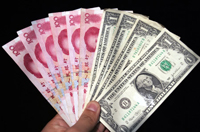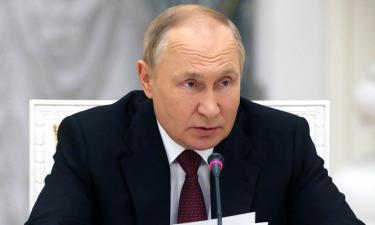China rebukes Washington for mismanagement
In a new twist, Chinese officials who have been getting an earful from Americans on how to run their economy are now openly rebuking the United States for the world's economic ills - and even dispensing some advice.

From the plummeting US dollar to the American housing market crisis, which have wreaked havoc across the globe, Beijing has been hinting mismanagement on the part of Washington and cautioning about the dangers of keeping markets too open.
The self-confidence of the Chinese, riding on the crest of rapid economic growth on the back of 1.7 trillion dollars in foreign reserves, was highly evident at the bilateral cabinet-level talks that began in Annapolis, Maryland, east of Washington on Tuesday.
If at previous meetings of the twice-yearly Strategic Economic Dialogue the Americans have been telling the Chinese how to reform their country using the US economy as an example, it may be the opposite this time, indiatimes.com reports.
Read also: China makes US economy its hostage
The United States pressed China on Tuesday to advance market-opening measures but faced criticism over its weakening dollar as the two nations opened talks to address economic issues.
At the start of discussions in Annapolis, Maryland, east of the US capital, US Treasury Secretary Henry Paulson said economic difficulties facing both China and the United States should not lead to trade and investment restrictions.
"As we manage through the current challenges, we must also focus on the long-term fundamentals that underlie sustainable growth in both our nations," said Paulson, who led the US side to the two-day cabinet-level "strategic economic dialogue" (SED) at the US Naval Academy.
"Openness and trade create jobs and opportunities for people to rise out of poverty, and are necessary for economic growth and stability -- in both China and in the United States," he said, with Chinese Vice-Premier Wang Qishan by his side and cabinet ministers from the two nations standing behind them.
Wang, who led the Beijing team to the dialogue , warned against politicizing economic issues and moved to deflect any criticism by highlighting the US housing market crisis that has led to massive losses in the finance sector and a global credit crunch, the AFP reports.
The Chinese yuan kept climbing Wednesday, with the official "parity rate" set at an all-time high against the U.S. dollar as American and Chinese officials resumed talks centering on trade and other strategic issues.
Washington wants Beijing to loosen controls on currency trading and allow the yuan's rate to set by market forces. U.S. manufacturers contend that the restrictions keep the yuan's value artificially low, giving Chinese exporters an unfair advantage and boosting China's trade surplus.
The yuan has gained about 20 percent against the U.S. dollar since Beijing revamped its foreign exchange trading system in July 2005, revaluing the currency by 2.1 percent to 8.11 yuan to one dollar.
On Wednesday, the Chinese yuan began trading at a 6.8823, continuing a steady advance against the dollar that has taken it to fresh highs in recent weeks.
China has pledged to loosen currency controls, but has not given any timetable, saying that sudden change would expose the country's shaky financial system to excessive risks from outside speculators.
The yuan has gained about 6 percent so far this year, compared with a 6.9 percent gain in 2007.
Top finance officials from the United States and China pledged greater cooperation Tuesday on a range of economic issues from dealing with soaring energy prices to coping with the global shocks from America's subprime mortgage crisis.
But it was clear that the fourth round of high-level economic talks would leave both nations far apart on a number of contentious subjects from U.S. unhappiness over the slow pace of China's economic reforms to Chinese concerns about increasing protectionist sentiments in the United States, the AP reports.
Source: agencies
Subscribe to Pravda.Ru Telegram channel, Facebook, RSS!




